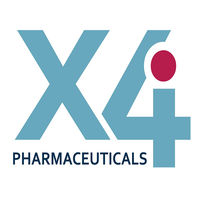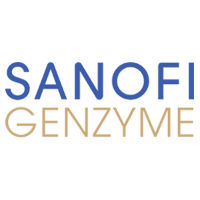预约演示
更新于:2025-05-07
Retroviridae Infections
逆转录病毒科感染
更新于:2025-05-07
基本信息
别名 DISEASES DUE TO RETROVIRIDAE、Disease caused by Retroviridae、Disease caused by Retroviridae (disorder) + [38] |
简介 Virus diseases caused by the RETROVIRIDAE. |
关联
2,025
项与 逆转录病毒科感染 相关的药物靶点- |
作用机制- |
非在研适应症- |
最高研发阶段批准上市 |
首次获批国家/地区 美国 |
首次获批日期2025-03-25 |
靶点- |
作用机制- |
在研机构 |
原研机构 |
在研适应症 |
非在研适应症- |
最高研发阶段批准上市 |
首次获批国家/地区 中国台湾 |
首次获批日期2025-01-08 |
靶点 |
作用机制 CXCR4拮抗剂 |
原研机构 |
最高研发阶段批准上市 |
首次获批国家/地区 美国 |
首次获批日期2024-04-26 |
10,889
项与 逆转录病毒科感染 相关的临床试验NCT06766331
Integrating Infectious Diseases Screening and Treatment With Medication Assisted Therapy for Veterans With Opioid Use Disorder
Opioid use disorder (OUD) confers a higher risk of acquiring and transmitting infectious diseases, which may have long-term health consequences in Veterans. Treatment of OUD with medication assisted therapy is highly effective, however this often occurs independently of infectious diseases care. This project will test out a new model that combines infectious diseases and OUD care within one VA clinic appointment. This new care model may improve the health of Veterans and reduce cost and time required for Veterans who often need to attend multiple outpatient appointments.
开始日期2028-04-03 |
NCT06487351
The Impact of an Intervention to Reduce Pharmacists' Racial Bias Towards People of Color at Risk of HIV
This study will follow the ADAPT-ITT model to apply the Prejudice Habit Breaking Intervention (PHBI) to pharmacists who have experience with or are willing to prescribe PrEP. We will first collect qualitative data through focus group discussions guided by the Health Equity Implementation Framework (HEIF) on determinants related to the intervention itself, pharmacists, and the community pharmacy context that may impact implementation of the PHBI. Then, we will use this information to adapt the PHBI in an iterative process involving topic experts, pharmacists, and PrEP users. We will then determine the feasibility, acceptability, and preliminary impact of the adapted PHBI to reduce implicit racial bias.
开始日期2027-07-01 |
申办/合作机构- |
NCT06370481
HIV, Equity, and Addiction Training (HEAT) Program
This project is a pilot study to determine the feasibility and acceptability of a telemedicine intervention for substance use disorder service delivery in diverse people living with HIV in Alabama.
开始日期2026-12-01 |
100 项与 逆转录病毒科感染 相关的临床结果
登录后查看更多信息
100 项与 逆转录病毒科感染 相关的转化医学
登录后查看更多信息
0 项与 逆转录病毒科感染 相关的专利(医药)
登录后查看更多信息
271,399
项与 逆转录病毒科感染 相关的文献(医药)2025-12-31·Global Public Health
Attitudes and behaviours associated with HIV transmission in men who have sex with men in Portugal – a qualitative study
Article
作者: Camargo, Kenneth ; Correia-Neves, Margarida ; Correia, Filipa ; Aboim Horta, Ana ; Nossa, Paulo ; Delerue-Matos, Alice
2025-12-31·Annals of Medicine
Prediction of new HIV infection in men who have sex with men based on machine learning: secondary analysis of a prospective cohort study from Western China
Article
作者: Zhong, Xiaoni ; Li, Kangjie ; Tao, Yi ; Zeng, Haijiao ; Deng, Jielian ; Shi, Guiqian ; Lin, Bing ; Zou, Lei ; Xie, Biao ; Wang, Qian ; Zhang, Cong
2025-12-31·Emerging Microbes & Infections
GNLY+CD8+ T cells bridge premature aging and persistent inflammation in people living with HIV
Article
作者: Zeng, Qing-Lei ; Yang, Bao-Peng ; Huang, Hui-Huang ; Li, Wei-Zhe ; Zhou, Ming-Ju ; Zhen, Cheng ; Wang, Hui-Fang ; Guo, Qian-Xi ; Zhang, Ji-Yuan ; Zhang, Zhixin ; Li, Xia ; Sun, Fang ; Zhao, Liang ; Yin, Bai-Lu ; Chen, Si-Yuan ; Zhang, Chao ; Zhang, Li-Ping ; Wang, Fu-Sheng
3,611
项与 逆转录病毒科感染 相关的新闻(医药)2025-05-04
·药事纵横
声明:因水平有限,错误不可避免,或有些信息非最及时,欢迎留言指出。本文仅作医疗健康相关药物介绍,非治疗方案推荐(若涉及);本文不构成任何投资建议。4月11日—14日,由中国性病艾滋病防治协会(以下简称“中艾协”)主办的第十届全国艾滋病学术大会,在浪漫之城广东珠海隆重开幕。在艾研项目总结大会上,艾迪药业公布了我国首个获批上市的抗HIV口服1类创新药——艾诺韦林(ANV)初治HIV人群RACER研究预存耐药亚组病毒学有效性结果。这一研究结果,有望改变我国现有预存耐药HIV人群的临床治疗模式。图片:来源网络我国初治人群预存耐药形势严峻,传统非核苷类药物治疗面临挑战据我国CDC 2004~2022年统计数据,我国初治HIV人群预存耐药流行率逐年攀升,2022年总体达7.8%。其中,传统非核苷类药物预存耐药率达6.7%,现有一线药物依非韦伦(EFV)的预存耐药率更是达到6.3% [1]。造成传统非核苷类药物耐药的最常见相关突变位点包括K103和V179,这些位点突变可导致EFV药物敏感性显著下降,进而导致病毒学失败和治疗失败,并可能进一步造成传播性耐药。综上,现有一线以EFV为基础的方案亟待优化替换。艾诺韦林:结构优化,不惧耐药艾诺韦林(ANV)是新一代非核苷类逆转录酶抑制剂(NNRTI),于2017年3月获批开展临床研究。经过众多科研工作者和临床专家的共同努力,ANV于2021年6月获批上市(艾邦德®)。不同于传统非核苷类药物EFV的“刚性蝴蝶”结构,ANV具有独特的、优化“柔性马蹄”结构,并有着不同于EFV的逆转录酶结合位点 [2]。除了和EFV有着类似的K101和K103等位点弱作用氢键结合外,ANV更多地还通过强效π-π堆积结合Y181和W229位点。ANV抑制逆转录酶活性不依赖K103位点,因此对EFV常见的K103N仍旧保持敏感。体外药敏试验进一步证明,ANV对主要传统非核苷类药物耐药相关突变K103N、L100I、Y181C和G190A抑制商(IQ)均高于敏感性阈值,蛋白结合校正的半数有效浓度(pa-EC50)倍数变化(FC)均低于耐药性阈值。艾诺韦林:临床循证,抑制率更高 RACER研究是我国首个口服抗艾创新药注册性Ⅲ期试验,全国共计7家临床中心参加,由首都医科大学附属北京佑安医院吴昊教授牵头。630例初治HIV参研者随机分成两组,分别服用 ANV 150mg和 EFV 600mg,均联合拉米夫定和替诺福韦,每天一次,双盲治疗至48周 [3]。其中有69例参研者仅检出传统NNRTI耐药相关突变,ANV组42例(13.3%),EFV组27例(8.6%)[4]。常见的突变位点主要包括V179和V106,既往报告可导致EFV高度交叉耐药和病毒学抑制百分比降低 [5-8]。治疗24周和48周时,ANV组预存传统NNRTI耐药相关突变亚组病毒学抑制(HIV RNA水平<50 copies/mL)百分比分别为95%和88%,均高于EFV组的74%和74%。另外,ANV组治疗病毒学抑制作用不受基线是否预存相关耐药突变的影响,治疗48周基线预存耐药和野生型参研者抑制百分比分别为88%和89%,两者相当。与之相比,EFV组抑制百分比则从野生型参研者的94%下降到了预存耐药参研者的74%。这一发现表明,使用ANV方案治疗时一般不用考虑基线耐药基因型检测,而使用EFV方案则要考虑根据基线检测及时调整方案,尤其是在EFV耐药高流行地区。ANV方案预存耐药亚组共计有5例治疗在48周未实现病毒学抑制,其中3例在后续的48~96周开放治疗期中继续ANV方案治疗实现病毒学抑制。EFV方案预存耐药亚组共计7例未实现病毒学抑制,其中4例转为ANV方案治疗实现病毒学抑制。另外,共计4例参研者预存K103N突变,其中3例使用了ANV方案均实现病毒学抑制。关注依从性,优化一线治疗方案目前我国HIV人群预存耐药突变处于中等流行水平(6%)需要警惕,但是抗逆转录治疗成功的关键在于早期发现诊断治疗和长期的依从性管理 [9]。ANV方案包括后续上市的以ANV为基础组成的固定剂量复方制剂——艾诺米替片(复邦德®)抗病毒有效性确切,在神经精神、肝脏及心血管代谢安全性方面具有优势。因此,长期治疗依从性和接受性高,可最大程度降低耐药风险,减少治疗失败。对于初治和既往以EFV为基础方案治疗的转换人群,在现有临床耐药流行情况下使用ANV方案可以不依赖基线耐药检测。当下国际形势波谲云诡,而我国既往抗HIV创新药物几乎被进口产品垄断。艾迪药业作为创新型民族抗艾研发企业,在民族抗艾事业上责无旁贷,力求为患者提供更为全面多元的药物选择,不断满足国内艾滋病治疗升级的迫切需求,助力中国和全球实现“2030年消除艾滋病公共威胁”的目标!特别感谢首都医科大学附属北京地坛医院张福杰教授团队在本项研究中基因型耐药和HIV RNA定量检测方面所做出的贡献。接下来,该项研究的更多具体内容将在其他国内、国际学术会议和期刊上进一步分享,敬请期待。
上市批准寡核苷酸临床3期申请上市
2025-05-01
·抗体圈
摘要: 抗体-药物偶联物(ADC)包括抗体、接头和药物,它们通过抗体和表面抗原之间的特异性结合将其高效小分子药物引导至靶向肿瘤细胞。应正确设计或选择抗体、接头和药物,以达到所需的疗效,同时最大限度地减少脱靶毒性。由于结构独特而复杂,与产品相关的变化和制造过程会引入固有的异质性。本文主要介绍了ADC历史、临床开发状态、分子设计、制造工艺和质量控制方面的最新关键进展。制造过程,尤其是偶联过程,在其整个生命周期中应仔细开发、表征、验证和控制。质量控制是确保产品质量和患者安全的另一个关键要素。以患者为中心的策略已得到制药行业治疗性蛋白质的广泛认可和采用,并且也已成功应用于ADC,以确保ADC产品在保质期结束前保持其质量。对产品的深入了解和过程知识定义了属性测试策略(ATS)。质量源于设计(QbD)是用于流程和产品开发以及定义整体控制策略的强大方法。最后,我们总结了当前ADC开发面临的挑战,并提供了一些可能有助于给出相关方向并引发更多跨职能研究以克服这些挑战的观点。1.ADC药物概要 第一个ADC药物于2000年获得批准。然而,14种ADC药物中有9种在近 4 年内获得批准。ADC药物开发简史和关键事件 流通的ADC药物通过mAb部分与特定的肿瘤细胞表面抗原结合。结合的ADC药物被内化到内体的肿瘤细胞中。ADC药物从肿瘤细胞中回收或通过接头切割或mAb消化释放药物。释放的药物诱导细胞凋亡或杀死靶向微管或DNA的肿瘤细胞。释放的药物也可能通过渗透邻近细胞来诱导旁观者效应。ADC作用机制图截至2023年1月全球上市的ADC药物2.抗体-药物偶联物的关键要素2.1抗体-药物偶联物的抗原靶标 一个好的ADC抗原靶标具有相似的抗原特性,通常考虑以下方面: (1)抗原靶标的表达和丰度:抗原靶标在肿瘤组织中特异性高表达,在正常健康组织中低表达或无表达。理想的靶抗原应该是非分泌性的,不易从肿瘤细胞表面脱落,并且可溶性形式很少或没有可溶性。确定ADC靶标的抗基因选择性的关键不是肿瘤组织和健康组织中的绝对表达水平,而是表达比。ADC处理后,不应下调靶抗原的表达,以避免靶抗原表达下调介导的ADC耐药。(2)内化特性:抗原靶点内化的速度和水平是重要的参数,直接影响肿瘤细胞对ADC的吸收和释放。同时,非内部化ADC还可以通过有毒小分子的“旁观者效应”发挥治疗作用。(3)抗原共表达和协同效应:ADC可能面临诸如抗原靶点表达低的患者肿瘤,因此对治疗反应小,以及靶向非肿瘤毒性安全问题等问题。双特异性 ADC 结合了双特异性抗体和ADC的优点,为这个问题提供了新的方向。两种抗原靶标的共表达在肿瘤组织中相对常见,但在正常组织中非常罕见。双特异性抗体ADC可以更特异性地靶向肿瘤细胞,理论上可以减少靶向非肿瘤毒性并改善用药窗口 。其次,通过交联促进两种抗原的协同作用,增强内窥镜,通过减少细胞膜上受体蛋白的表达,可以进一步抑制肿瘤细胞生长信号,更有效地杀死肿瘤细胞,同时提高毒素进入肿瘤细胞的效率。2.2抗体-药物偶联物中的抗体 抗体是ADC的重要组成部分,通常考虑以下几个方面: (1)抗体的特异性和亲和力:理想的抗体需要高特异性,但也需要适当的亲和力以增加肿瘤部位的ADC通透性。优化抗原和抗体之间的合理亲和力是平衡ADC在靶细胞中的快速吸收和抗癌效用的关键点。(2)抗体的内化效率:大多数ADC在与靶抗原结合时被抗体介导的内吞有效内化。因此,在抗体选择中,首选具有高效和快速内吞活性的抗体。一些研究正在探索非内化ADC靶向肿瘤细胞微环境结构成分的可能性。这种方法可通过靶向肿瘤基质内高表达的抗原来克服实体瘤穿透障碍 。(3)分子类型和Fc功能:已上市和临床开发的ADC药物中使用最广泛的亚型是IgG1。ADC的Fc有效功能的丧失在某种程度上是有利的。ADC药物与效应细胞的结合可能会减少它们在肿瘤部位的积累,阻碍它们进入细胞,或导致对正常细胞的毒性增加。除了经典的全长单克隆抗体外,ADC的抗体部分还使用双特异性抗体和不同形式的小分子抗体。双特异性ADC提供更高的肿瘤靶向性,两种抗原的协同内吞作用提高了ADC的疗效,同时提高了安全性。为了获得更多的肿瘤渗透性ADC,新型ADC分子的设计策略已经转向不同的小分子抗体形式,包括Fab药物偶联物、scFv药物偶联物和单链抗体(VHH)偶联药物 。这些新型小分子抗体ADC比传统ADC具有更小的分子量和更好的肿瘤渗透性。然而,这些较小的形式可能与较短的半衰期和较快的清除率有关。(4)药物形成和药代动力学特性:抗体与毒性小分子偶联后,由于小分子毒物的强疏水性,ADC分子的特性可能会发生变化,因此抗体分子需要具有较好的药物凝固性。新一代ADC越来越多地使用免疫原性显著降低的全人源化抗体。ADC表现出与抗体相似的药理学特征。因此,理想的抗体选择还应考虑低免疫原性并保持最佳PK特性。2.3抗体-药物偶联物中的接头 ADC中的接头在将抗体连接到有效的小分子中发挥作用,是影响药物的关键元素稳定性、安全性和有效性 。接头需要在循环中保持稳定,并在进入肿瘤细胞后迅速释放负荷 。它主要分为可裂解型和非裂解型。此外,可切割类型进一步分为化学切割型和酶裂型。 不可切割的连接子具有良好的循环稳定性,降低了脱靶毒性,但它们需要进入肿瘤细胞的溶酶体,在那里被蛋白酶降解以释放负载复合物,释放率低。负载复合物通常由氨基酸 - 接头 - 有效载荷组成。它的渗透性很差,因此引发旁观者效应的能力有限。化学裂解接头主要包括酸裂解型和还原型裂解型。化学裂解接头从裂解中迅速释放,但它们在循环中的稳定性差,容易导致脱靶毒性 。酶裂解接头是使用最广泛和研究最广的接头。它们主要包括组织蛋白酶B、β-葡萄糖醛酸酶和硫酸酯酶裂解型。在这些类型中,组织蛋白酶B裂解型是最常用的。组织蛋白酶B是一种在各种癌细胞中过表达的溶酶体蛋白酶。此外,它可以优先识别PL、VC、VA和GGFG等特定氨基酸序列,并在这些序列的C端裂解肽键。这种接头既具有良好的循环稳定性,又具有在肿瘤细胞中快速裂解和释放毒素的能力。2.4抗体-药物偶联物中的细胞毒载量 细胞毒载量对ADC的作用至关重要。已知的毒性负荷通常包含微管蛋白抑制剂和DNA抑制剂。通常活性强,水溶性好,稳定性好。在有效杀伤肿瘤细胞的同时,还应降低对正常细胞的杀伤作用。除了传统的有毒负载外,还有许多创新负载正在开发和应用。微管破坏毒素 微管破坏毒素主要通过与微管蛋白结合来达到破坏细胞有丝分裂的目的,导致微管持续伸长或阻止微管聚合。它们主要包括奥司他汀、美登素类药物和艾日布林。特别是MMAE因其强大的活性和膜通透性而被广泛使用。DNA损伤毒素 DNA损伤毒素主要包括DNA片段化型、DNA烷基化型和拓扑异构酶 I/II抑制因子。DNA 损伤毒素不受细胞周期影响,半衰期短。它们不易积累,具有广泛的抗癌谱和指示。常用的毒素包括PBD、多利卡霉素、阿奇霉素、SN38和DXd,其中拓扑结构酶I抑制剂DXd是临床实践中最有效的毒素。从这种毒素开发的HER2 ADC已成为改变乳腺癌诊断和治疗的划时代产品。创新毒素 除了常规的毒性负荷外,还有各种创新的负荷产生应用,包括TLR7/8 激动剂、STING激动剂、Bcl-xL抑制剂和裂粒体抑制剂。2.5偶联 偶联技术对于ADC的均一性、稳定性和药代动力学至关重要。这些技术分为两大类:非定点偶联和定点偶联 。非定点耦合:赖氨酸偶联和半胱氨酸随机偶联 最早的非定点耦合技术是赖氨酸偶联技术,其偶联选择相对较差,均一性不足,对ADC的PK/PD有影响。该方法用于市售Kadcyla、Mylotarg 和 Besponsa的偶联。半胱氨酸随机偶联将偶联位点减少到8个,从而显着提高了偶联稳定性和均一性。这是目前使用最广泛的共轭结合方法。市售的Polivy、Padcev和Adcetris使用这种方法进行偶联 。一般来说,非定点偶联产物是稳定性差、易聚集、治疗窗相对较窄的混合物。定点偶联:半胱氨酸定点偶联、天然抗体定点偶联和抗体定点工程修饰 定点偶联可实现同质、更稳定的ADC并扩大治疗窗口。定点结合技术可分为以下几类:半胱氨酸的定点结合:(1)饱和结合:第一三共的 Enhertu在饱和结合方法中占据所有结合位点,以实现定点结合。(2) 硫瘤单抗:基因泰克将赫赛汀轻链第110位的缬氨酸突变为半胱氨酸,并特异性地与马来酰亚胺接头反应。Sevie、ImmunoGen、Abbagen、Pfizer和其他公司也有类似的技术。(3)桥接:Abzena/Poly therics开发了一种双苯磺酸接头,可以与两个游离硫醇连接,以获得药物抗体比(DAR)值为4的均质样品,并提高了ADC的稳定性。荣昌的triallytriazine连接剂也具有类似的作用。天然抗体的定点偶联:(1)赖氨酸的定点偶联:在特定的pH条件下,由于位置和微环境的差异,抗体上的赖氨酸与接头的反应速率不同。科伦生物的A166是基于该方法开发的HER2定点偶联ADC。(2)糖基修饰的定点偶联:天然抗体的N297位点有不同类型的糖基修饰。Synaffix的GlycoConnect技术使用甘油苷酶和糖基转移酶修饰,将叠氮化物基团连接到 N-乙酰氨基葡萄糖上。这可以触发与环辛炔的点击化学反应,形成DAR值为2的位点导向偶联ADC。此外,中国科学院上海药物研究所发现,内切糖苷酶Endo-S2可在水解抗体的N297位点的同时,将N-乙酰乳糖胺转移到去糖基化位点。这实现了一步法糖定点偶联 。抗体的定点工程修饰:(1)非天然氨基酸偶联:Ambrx的EuCODE技术允许将对乙酰苯丙氨酸 (pAcF)精确插入抗体中定义的位置,通过肟键进行定点偶联。Sutro Biopharma的Xpress CF技术将对叠氮甲基苯基羊毛氨酸(pAMF)引入抗体中,并通过点击化学反应进行定点偶联。(2)肽酶偶联:为了达到定点偶联的目的,酶识别抗体的特定位置。以下技术具有代表性:NBE Therapeutics的Sortase技术、Redwood Bioscience的SMARTag技术、LegoChem的ConjuAll技术和辉瑞的BTG 技术。3.抗体偶联物的生产 为了建立可靠且可重复的ADC制造工艺,我们根据上市前风险评估的概念,使用实验设计(DoE)进行实验设计。确定对药物质量属性有影响的工艺参数,控制工艺开发和生产过程中的关键工艺参数,确定合理的设计空间,不仅可以确保生产按预期进行,还可以获得质量可控的ADC产品。整个ADC生产过程一般包括单克隆抗体制备(细胞扩增和蛋白表达阶段、蛋白质纯化阶段)、接头和小分子药物制备、偶联和最终产物制备(图3)。基于抗体药物生物大分子的特殊属性,除了抗体的质量属性、工艺特性和过程控制外,还需要关注ADC生产过程中的工厂、设备、设施和污染控制。【ADC工艺开发/生产/风险等内容请参考原文】图3:ADC生产过程的流程图mAb部分是通过典型的单克隆抗体生物制造工艺生产的,包括细胞培养和纯化步骤。抗体中间体(AI)与通过化学合成或生物制造工艺生产的药物偶联。偶联过程是mAb与接头药物(例如半胱氨酸碱基)之间的化学反应或mAb和接头之间的后续反应,然后是与药物的反应(例如赖氨酸定向)。所得 ADC 原料药经过纯化,并在适用的情况下通过无菌灌装和冻干工艺进一步生产成药品。4.抗体-药物偶联物的质量控制 控制策略包括一组基于当前产品和过程理解的计划控制措施,以确保过程性能和产品质量。该规范是整体控制策略的一部分,其定义为测试列表、分析程序的参考和适当的验收标准。选择基本特性是为了确认原料药和药品的全部质量,而不是建立完整的表征。因此,应采用系统性方法来设定适当的规范。为生物治疗产品和杂质设定商业规范的方法已经建立并得到业界的广泛认可。这种方法强调基于产品知识的基于风险的方法,以确保患者的安全性和有效性。已经发布了一种系统方法来识别和评估关键质量属性(CQA)这些CQA包括产品变体、与工艺相关的杂质、强制性CQA、原材料和可浸出化合物。使用代表性材料在抗体、小分子或DS水平表征产品,以获得对产品物理化学和生物特性的深入了解至关重要。色谱和电泳技术、光谱技术和质谱法广泛用于物理化学表征,而结合测定、ELISA和基于细胞的生物分析则广泛用于生物表征。ADC产品的典型CQA如图4所示。CQA的可接受考虑范围基于临床经验,以及来自特定产品临床研究、先验知识、文献和法规的信息,其中考虑了工艺能力和方法可变性。属性测试策略基于过程能力和产品稳定性。这些是确定是否应在过程控制(IPC)、发布或稳定性期间测试CQA以及哪些CQA最适合测试的有益步骤。图4:抗体、小分子、原料药和药品的典型CQA。小分子包括接头、药物或接头-药物复合物(如适用)ADC的CQA4.1药物抗体比(DAR) DAR对产品安全性、有效性和PK有直接影响。它在DS工艺 中使用适当的分析方法进行控制和测试。应进一步评估DS稳定性、药品(DP)过程和稳定性影响,以确定是否应在这些阶段测试DAR。验收标准在很大程度上依赖于特定于产品的临床经验。目前,包括紫外-可见分光光度法、疏水相互作用色谱法(HIC)、反相色谱法(RPLC)和尺寸排阻色谱-质谱法(SEC-MS)在内的方法通常用于表征制造过程和质量控制中的DAR。紫外-可见分光光度法可以利用Drug-Linker和mAb的不同最大吸收波长来确定DAR,但无法获得DAR分布信息,并且容易受到游离药物的干扰。HIC 可以根据疏水差异分离不同的DAR分子,然后获得分析DAR和DAR 分布。作为一种天然分析方法,HIC常用于Cys偶联的ADC。然而,该方法受到高DAR样品的挑战,并且对DAR6、DAR7和DAR8的分离度很差。RPLC可以在变性下分离不同的DAR分子或相关亚基条件,并且其分辨率通常优于HIC。然而,在RPLC 条件下,Cys偶联的ADC会解离成LC和 HC,因此只能获得LC和HC上的平均DAR和药物分布。当使用非变性分离条件、软电离和高分辨率质谱(HRMS)时,SEC-MS对不同的DAR表现出优异的分辨率,并与大多数ADC兼容。因此,SEC-MS越来越多地用于早期开发和ADC表征。4.2偶联位点分布和非偶联mAb部分 ADC产品具有异质性,并且包含具有不同偶联药物数量和不同偶联位点的分子,这可能会影响安全性和有效性。异质性的程度在很大程度上取决于ADC平台。根据目前的知识,赖氨酸导向、链间导向的半胱氨酸和位点特异性偶联平台按降序排列。偶联位点分布和非偶联的mAb部分连接可与DAR相关,用于产物特征化和通过DAR测试进行受控表征。4.3游离药物 游离药物,也是一种非偶联药物,具有潜在的全身毒性。尽管游离药物可以有多种形式,例如药物或连接药物,但它们通常被集体处理。游离药物的验收标准是根据其毒性设定的,同时考虑到工艺的清除能力。在DS释放期间需要控制游离药物。此外,根据ADC产品在DS存储、DP工艺和 DP存储期间的稳定性,也需要在这些阶段进行测试。4.4残留溶剂 有机溶剂通常用于DS生产中,以溶解疏水性细胞毒素。应根据溶剂的毒性和生产过程的去除能力确定残留溶剂的可接受标准。残留溶剂通常在DS放行时进行测试,其他阶段的测试要求应根据残留溶剂对DS稳定性、DP工艺和 DP稳定性的影响来确定。4.5大小变体 大小变体通常包括片段和聚集体。聚集体通常以可解离和不可解离的形式存在。DP在保质期结束时的验收标准应确保疗效和患者安全,这主要基于产品特定的临床经验。根据工艺和稳定性影响进行逆向计算,为抗体即刻(AI)、DS和DP阶段设置适当的验收标准。低分子量型(LMW) 可以通过肽键或链间切割形成。可以使用相同的策略为聚集体设置适当的 LMW标准,但要特别注意ADC片段可能携带偶联药物并引起脱靶毒性。因此,LWM形式应在安全水平以下进行表征和控制。4.6电荷异构体 电荷异构体常见于抗体和ADC中。修饰,包括脱酰胺、天蕨酸异构化、糖基化和 C端赖氨酸,可导致电荷转移和电荷形式变体。应根据产品特定的临床经验,单独评估和设置适当的验收标准。对于某些ADC,在共轭后测试电荷变化可能具有挑战性,因为共轭可能会导致电荷偏移。在这种情况下,产品知识和过程理解有助于使用适当的分析方法制定适当的控制策略。如果产品在代表性的DS和DP工艺和储存条件下保持稳定,则在AI级别进行测试可能足以控制电荷变体。4.7其他形式的变体 根据产品特性和ADC平台,需要考虑一些变体。这些包括但不限于由氧化引起的变体、序列变体、游离二硫键和硫醚。这些属性可能会影响产品的安全性或有效性,或者可能会影响ADC产品质量。例如,三硫键可能不是mAb的CQA,但由于它对DAR的影响,它对链间半胱氨酸ADC平台至关重要。应根据具体情况评估这些不同的蚂蚁。4.8数量或强度 蛋白质含量通常包含在 DS 和 DP 放行中,以确保产品量正确。4.9效价 效价方法应通过反射动作来定义。对于ADC产品,它们主要用于杀死癌症患者的肿瘤细胞。基于细胞的生物测定法有望用于效价测试。这些 生物检定表示也应该具有稳定性,如方法验证所证明的那样。我们必须考虑方法的可变性,以便设置适当的验收标准。4.10糖基化修饰 众所周知,糖基化模式可能会影响效率、安全性或PK。对于ADC产品,mAb的主要作用是将药物递送至靶细胞,因此糖基化可能不会影响疗效。如果存在可能受糖基化模式影响的继发性作用机制(MOA),例如抗体依赖性细胞介导的细胞毒性(ADCC)、抗体依赖性细胞介导的吞噬作用(ADCP)或补体依赖性细胞毒性(CDC),则应充分表征ADC产物。在这种情况下,糖基化可以作为CQA进行评估,并包含在 AI IPC或放行测试中,具体取决于工艺能力。4.11接头、药物或接头-药物 小分子药物中间体(包括接头、药物和接头药物)的质量控制与小分子药物活性药物成分(API)的质量控制相似,特别考虑了其对ADC产品的影响。4.12纯度 纯度是典型的CQA。更广泛的验收标准取决于其对ADC产品质量和 DS工艺的影响。如果接头或接头药物被过度添加而对DAR没有影响,并且可以在整个过程中有效地去除,则可以证明验收标准是合理的。4.13可偶联杂质 可偶联杂质具有反应性官能团,因此它们可以与AI反应生成副产物。这种副产品很难去除,因为这些蛋白质材料很难与ADC产品分离。因此,在小分子生产阶段对可偶联杂质进行控制和测试。4.14不可偶联杂质 不可偶联杂质没有官能团,不能与mAb连接。这些杂质被控制在低水平,以最大限度地降低对患者的潜在风险。此类杂质可以在小分子阶段进行控制和测试。4.15其他与工艺相关的杂质 其他工艺杂质可以从各种来源进入最终产品,例如DS工艺中残留的重金属。应单独评估每种杂质以识别CQA。应根据临床经验、先验知识或法规要求将这些杂质控制在安全水平以下。过程能力 是设置测试策略的关键考虑因素。如果该工艺已被证明可以有效去除杂质,则质量控制测试将增加最低价值。4.16表面活性剂含量 通常将表面活性剂添加到配方中以保护产品并提高稳定性。表面活性剂含量的验收标准是根据配方开发数据设定的。测试策略取决于制造工艺和储存条件下表面活性剂的稳定性。4.17其他质量属性 还有其他质量属性,如药典要求,包括颜色、透明度、内毒素水平、纯度、可见颗粒、亚可见颗粒、pH、渗透压、可提取体积、固体剂量的填充重量、再溶解时间和冻干的水分。可接受性可以根据药典要求设置,也可以根据配方开发进行设置。现代过程控制可能比最终产品测试更强大。一个示例是在线填充重量,它将提供比最终产品填充重量或可萃取体积测试更强大的过程控制。可浸出物可能来自不同的来源,例如制造过程 或容器密封系统,它们包括有机杂质和元素杂质。这些杂质通常在过程代表性条件或储存条件下进行表征,以证明杂质处于安全水平。ICH指南,如ICH Q3系列,提供了有关安全水平的详细信息。浸出物通常或不一定包含在AI、DS或DP测试中,因为水平通常得到很好的控制。5.结论 ADC生产包括抗体生产、接头和药物化学或生物合成、偶联和药品的最终制剂。与传统的单克隆抗体药物相比,偶联过程存在特殊挑战。偶联过程取决于所选的连接子和药物,以及要偶联的氨基酸。本文说明了已上市ADC药物的常用工艺,但并非全部包括制造工艺。来自开发活动、工艺验证、临床生产、文献和先验知识的理解知识有助于确定关键工艺参数和控制措施。ADC药物的质量控制策略是根据对工艺的理解和产品知识制定的。以患者为中心的方法被广泛用于根据临床经验和法规要求定义产品规格。考虑到工艺能力和产品稳定性,我们可以定义质量控制策略,包括要测试的质量属性、在哪个阶段以及适当的验收标准。因此,定义了一个总体控制策略,以确保制造过程始终如一地提供具有适当安全性和有效性的 ADC产品。 在过去的20年里,ADC的发展是由对替代和有效肿瘤治疗的高度未满足的临床需求推动的。第三代ADC的成功为ADC研究领域提供了更令人鼓舞的前景。全球ADC药物市场具有巨大的增长潜力。目前,全球共有15种ADC获批上市(13项FDA批准、1项中国批准和1项日本批准),还有更多ADC正在临床开发中。ADC的治疗潜力正在通过临床适应症扩大,从血液肿瘤到实体瘤,从单一疗法扩展到联合疗法(如常规化疗、免疫检查点抑制剂、靶向不同抗原的单克隆抗体以及小分子抑制剂)。近年来,寻找新型靶点、选择新型抗体形式、选择合适的有效载荷以及设计具有良好释放机制的连接子,成功开启了ADC药物在肿瘤以外的疾病中的应用,如自身免疫性疾病和感染性疾病 。在其他领域,这些应用也将进一步扩大 ADC 的临床应用。 识别微信二维码,添加抗体圈小编,符合条件者即可加入抗体圈微信群!请注明:姓名+研究方向!本公众号所有转载文章系出于传递更多信息之目的,且明确注明来源和作者,不希望被转载的媒体或个人可与我们联系(cbplib@163.com),我们将立即进行删除处理。所有文章仅代表作者观点,不代表本站立场。
抗体药物偶联物
2025-04-30
·小药说药
PD-1/PD-L1基本信息PD-1:PD-1属于CD28超家族,由PDCD1基因编码,包含5个外显子。PD-1蛋白包含一个IgV型的胞外域、一个柄状结构域,一个跨膜域和一个胞内域,胞内域包含免疫受体酪氨酸基抑制性基序(ITIM)和免疫受体酪氨酸基开关基序(ITSM)。PD-L1:PD-L1属于B7家族,由CD274基因编码,是一个33kDa的I型跨膜蛋白,包含290个氨基酸残基。PD-L1包含IgV样和IgC样胞外域、一个疏水的跨膜域和一个短的胞内尾,其中也包含ITIM和ITSM基序。PD-1及其配体PD-L1的结构示意图PD-1在不同免疫细胞中的作用PD-1在T细胞、B细胞、NK细胞、树突状细胞(DCs)和巨噬细胞上的表达上调。PD-1与PD-L1结合后,通过招募SHP-2和SHP-1去磷酸化,阻断下游信号传导,从而抑制B细胞和T细胞的激活、增殖以及细胞因子产生,同时也抑制巨噬细胞、树突状细胞和自然杀伤细胞的功能。肿瘤细胞和树突状细胞均可表达PD-1和PD-L1。巨噬细胞上的PD-1可由脂多糖(LPS)刺激诱导。具体来说,PD-1在不同免疫细胞中的作用如下:T细胞:PD-1在T细胞激活、耐受和耗竭中起关键作用,影响肿瘤发生、炎症和感染。PD-1的异常表达与多种疾病相关,包括黑色素瘤、结直肠癌、非小细胞肺癌等。B细胞:PD-1通过抑制B细胞激活、增殖和细胞因子产生来调节B细胞功能。PD-1在B细胞中的异常表达与类风湿性关节炎、某些肿瘤和乙型肝炎相关。树突状细胞:PD-1在DCs上的表达与免疫抑制相关,影响T细胞的激活和功能。NK细胞:PD-1在NK细胞上的表达与多种病理状态相关,影响其抗肿瘤功能。巨噬细胞:PD-1在巨噬细胞上的表达与免疫抑制和肿瘤进展相关。其他细胞:PD-1在其他免疫细胞(如ILCs、单核细胞和中性粒细胞)中的作用仍在研究中。PD-1在不同免疫细胞中的作用示意图T细胞与PD-1/PD-L1轴T细胞通过TCR和PD-1的相互作用:a)PD-1与PD-L1是维持免疫平衡的关键分子。正常情况下,抗原呈递细胞(APCs)与T细胞的相互作用会阻断PD-1/PD-L1轴。在这种情况下,APCs会抑制其PD-L1与T细胞的PD-1的相互作用,通过与PD-1的结合,这种机制促进了T细胞通过其MHC-TCR和多条信号通路的正常活性,能够有效减少自身免疫细胞对自身组织的攻击。此外,PD-1/PD-L1在细胞黏附、迁移、记忆T细胞的形成以及代谢等诸多方面也发挥着重要作用,还参与组织和器官的发育、再生等过程。b)异常情况下,机体允许T细胞的PD-1与肿瘤细胞的PD-L1相互作用。在这种情况下,这种作用会阻断T细胞的正常作用途径,导致细胞因子产生功能障碍、增殖减少和细胞毒性降低,从而促进肿瘤的进展。T细胞与PD-1/PD-L1在不同情况下的作用机制示意图PD-1/PD-L1轴在肿瘤微环境中起着关键作用,通过中和免疫系统促进肿瘤进展和逃逸。PD-L1与T细胞上的PD-1结合会导致T细胞功能障碍、中和、耗竭以及IL-10的产生,从而促进肿瘤的生长。此外,PD-1/PD-L1轴激活PI3K/AKT、MAPK和JAK-STAT等信号通路,这些通路对细胞增殖、存活和免疫逃逸至关重要。PD-1/PD-L1轴的免疫逃逸机制:抗原呈递细胞(APCs)通过主要组织相容性复合体(MHC)将肿瘤抗原递呈给T细胞受体(TCR),当MHC-抗原复合物特异性地结合到TCR时,会触发一系列信号转导,包括磷脂酰肌醇信号通路和丝裂原活化蛋白激酶信号通路,从而激活效应T细胞的免疫反应。当PD-L1与PD-1结合时,PD-1细胞质区域的ITSM和ITIM结构域中的酪氨酸残基发生磷酸化,招募并激活SHP2。随后,被招募的SHP-2介导TCR相关CD3和ZAP70信号复合体的去磷酸化,同时抑制CD28共刺激信号。这进一步减弱了下游TCR信号强度和细胞因子(如IL-2)的分泌,最终抑制了T细胞的功能。免疫逃逸机制示意图PD-1/PD-L1的表达调控以及相关信号通路PD-1:PD-1的表达受到多种因素的调控,例如抗原信号刺激以及炎症因子等。在急性感染和慢性感染中,PD-1表达的调控机制存在显著差异。在肿瘤免疫环境中,持续的TCR信号刺激可促使PD-1表达上调,进而诱导免疫耐受的发生。PD-1信号通路概述:PD-1对TCR信号的影响:如上文所述。PD-1对γc家族细胞因子信号的影响:PD-1通过直接靶向γc来拮抗γc家族细胞因子介导的免疫激活,通过SHP-2去磷酸化γcY357,导致其失活,并通过MARCH5介导的K27连接多泛素化和溶酶体降解γc。PD-1信号通路简略示意图PD-1在肿瘤细胞中的复杂调控机制:a)肿瘤细胞内源性PD-1的细胞内信号传导。PD-1的免疫球蛋白样细胞外结构域与PD-L1的免疫球蛋白样细胞外结构域相互作用,触发下游信号通路,包括mTOR信号通路、Ras/MAPK信号通路、AKT/ERK信号通路、Hippo信号通路和Wnt/β-catenin信号通路。这些信号通路在多种生物学过程中发挥着关键作用,如增殖、凋亡、细胞周期进程、上皮-间质转化(EMT)、转移扩散、线粒体活性氧(mROS)的产生、放化疗耐药性的形成以及癌症干细胞特性的维持。例如,PD-1信号通路在肿瘤细胞中的激活可导致mTOR通路下游分子的磷酸化增加,如核糖体S6蛋白(p-S6)。这些信号通路中关键分子的磷酸化可以对肿瘤细胞的行为和特性产生一系列影响,促进肿瘤的进展、侵袭性以及对治疗干预的耐药性。b)翻译后调控。翻译后调控的一个关键方面是FBW7作为PD-1蛋白的E3泛素连接酶的作用。FBW7促进PD-1在Lys233残基处的K48连接的多泛素化,从而标记其被蛋白酶体降解。这一过程对于控制肿瘤细胞中PD-1蛋白的水平至关重要。另一个重要的翻译后调控机制涉及MDM2,它增强了糖基化PD-1与糖苷酶NGLY1之间的结合。这种相互作用促进了PD-1的脱糖基化和由NGLY1介导的泛素化降解。此外,由FUT8介导的PD-1上特定残基(N49和N74)的岩藻糖基化对于PD-1的功能性定位至关重要。核心岩藻糖基化的缺失与PD-1被泛素-蛋白酶体系统降解的增强有关。(c)转录调控。PDCD1的转录受到多种转录因子的调控,包括p53、YB-1、NF-κB、CYY61/CTGF和P300/CBP。PD-1在肿瘤细胞中的复杂调控机制PD-L1:基因层面:PD-L1启动子区域的表观遗传修饰,包括DNA甲基化、组蛋白甲基化和乙酰化,在PD-L1表达的调控中也起着重要作用。例如,TNF-α/TGF-β1通过降低DNMT1(DNA甲基转移酶)水平诱导PD-L1启动子的去甲基化,导致PD-L1上调,从而发挥免疫抑制作用。在转录水平上,PD-L1表达主要由转录因子调控,包括STAT、MYC、NF-κB、IRF1、AP-1和HIF-1α,以及信号通路效应分子,如MAPK/PI3K/Akt、JAK/STAT3和EGFR/MAPK。PD-L1基因水平上的表达调控示意图转录和翻译后修饰层面:非编码RNA(如miR-34、miR-200和miR-197)可以通过直接结合PD-L1的3'非翻译区(3'UTR)来抑制PD-L1 mRNA的表达。PD-L1 mRNA的m6A修饰对于调控PD-L1的表达和稳定性以及介导肿瘤免疫逃逸至关重要。例如,去甲基化酶(如FTO和ALKBH)可以去除PD-L1 mRNA上的m6A修饰,增加其稳定性,并促进PD-L1的高表达。METTL3/IGF2BP3轴通过上调PD-L1 mRNA的m6A修饰来增强其稳定性,从而进一步促进肿瘤免疫逃逸。此外,翻译后修饰,包括磷酸化、泛素化、糖基化和棕榈酰化,可以通过影响PD-L1蛋白在癌细胞中的活性、稳定性和膜表达来调控PD-L1蛋白的表达。PD-L1表达在转录后和翻译后的调控机制不同形式的表达层面:多种转录因子直接参与PD-L1表达的调节,影响其在不同细胞环境中的上调。一旦合成,PD-L1 mRNA转移到细胞质中,在那里被翻译成蛋白质,随后呈现在癌细胞表面。这种表达有助于免疫逃逸机制的关键相互作用。非编码RNA(如miRNA、circRNA和lncRNA)在诱导PD-L1降解方面发挥重要作用。这些ncRNA通过各种机制途径调节PD-L1的水平,从而降低其总体表达。PD-L1还被包裹在细胞外囊泡中,特别是以小囊泡的形式出现,介导细胞间通信并影响肿瘤动态。这种包裹途径通过促进免疫抑制信号的系统性传播,在推进肿瘤免疫逃逸策略中起到了关键作用。PD-L1多种形式的表达谱PD-1/PD-L1信号通路机制概述如下图:PD-1/PD-L1的病理作用机制PD-L1在癌症中的作用:PD-L1在多种癌症中表达上调,与肿瘤的侵袭性、增殖和预后不良相关。例如,在非小细胞肺癌(NSCLC)中,PD-L1的高表达与肿瘤增殖、侵袭性增加和患者生存率降低相关。在黑色素瘤中,PD-L1在恶性黑色素细胞和免疫细胞上的表达与免疫治疗的抗肿瘤反应相关。在膀胱癌中,PD-L1作为生物标志物与肿瘤分级和疾病进展相关。在前列腺癌中,PD-L1的表达在转移性去势抵抗性前列腺癌(mCRPC)中更高,被认为是高风险患者的不良预后标志物。PD-L1在癌症中的作用简图PD-L1对肿瘤发展的作用:PD-L1不仅促进肿瘤细胞逃避免疫监视,还能以免疫独立的方式促进肿瘤进展。在肿瘤细胞中高表达的PD-L1可以通过与核输入蛋白KPNB1结合进入细胞核,并发挥促癌作用。核PD-L1还可以触发免疫检查点基因(包括PD-L2和VISTA)的上调,从而增强PD-1抑制的抗肿瘤反应。在缺氧条件下,用TNFα和CHX处理可以促进PD-L1的核转位,然后PD-L1与p-Stat3-Y705相互作用。随后,p-Stat3-Y705结合到GSDMC启动子区域,导致GSDMC基因表达上调。此外,GSDMC被caspase-8裂解并激活,触发细胞焦亡以及肿瘤缺氧区域的坏死。PD-L1对肿瘤本身的影响PD-1/PD-L1在移植和自身免疫性疾病中的作用:在器官移植过程中,PD-1在移植组织中浸润的T细胞表面高度表达。PD-1/PD-L1介导的负性调节信号可以抑制T细胞的过度激活,诱导免疫耐受,并在术后有效减少宿主与供体之间的免疫排斥。阻断PD-1/PD-L1会促进移植组织中浸润的T细胞增殖,加剧移植后的免疫排斥反应,并导致严重且持续的组织损伤。同样,PD-1和PD-L1信号之间的平衡被打破也会导致许多自身免疫性疾病的发生,如1型糖尿病(T1DM)、多发性硬化症(MS)、系统性红斑狼疮(SLE)和类风湿关节炎(RA)。PD-1/PD-L1在移植和自身免疫性疾病中的作用示意图PD-1/PD-L1的致瘤机制:PD-1/PD-L1通路促进效应T细胞的耗竭和凋亡。耗竭的T细胞(Tex)表现为高表达抑制性受体(如PD-1、LAG3和TIGIT)、细胞因子(如TNF、IL-2和IFN-γ)分泌减少、代谢改变以及增殖能力和存活能力受损。PD-1/PD-L1通过降低PI3K/Akt/mTOR和S6的磷酸化,同时增强PTEN,促进诱导性调节性T细胞(iTregs)的生成和发展,从而增强Treg细胞的免疫抑制功能并诱导免疫耐受。PD-1/PD-L1可促进肿瘤相关巨噬细胞(TAM)向M2表型极化,释放大量成纤维细胞生长因子、VEGF、TNF-α等细胞因子,促进血管生成并支持癌细胞的免疫抑制、侵袭和转移,加速癌症进展。自然杀伤细胞(NK细胞)上的PD-1与癌细胞上的PD-L1结合,抑制NK细胞的脱颗粒和细胞毒性功能,降低其杀伤肿瘤细胞的能力,促进肿瘤免疫逃逸。使用PD-1和PD-L1抑制剂可能会重新激活上述免疫细胞的抗肿瘤免疫反应。PD-1/PD-L1信号通过对免疫细胞的调控导致肿瘤形成的机制示意图PD-1/PD-L1对肿瘤的代谢作用:PD-1/PD-L1信号通过破坏有氧糖酵解,改变细胞能量合成和代谢途径,从而促进脂肪酸氧化(FAO)成为T细胞的主要能量来源。此外,NAD⁺代谢组分NAMPT可以通过Stat1依赖的IFN-γ信号通路增强肿瘤细胞中PD-L1的表达,进而抑制T细胞功能,重塑局部肿瘤微环境,最终对肿瘤的转移、复发和预后产生显著影响。此外,肠道微生物组也可以改善肿瘤进展并增强T细胞免疫反应,提示其在提高PD-1阻断疗法效果方面的潜在应用价值。PD-1/PD-L1信号影响肿瘤代谢的示意图PD-1/PD-L1轴的免疫治疗策略靶向PD-1/PD-L1轴的单抗药物:靶向PD-1/PD-L1轴的双抗药物:BsAbs的分类和作用机制:BsAbs分为非IgG格式和IgG格式,IgG-like剂保留Fc介导的抗体效应功能,而Fc-free BsAbs缺乏这些功能。BiTEs(双特异性T细胞接合剂)和Triomabs是主要的BsAb格式。BsAbs的Fc域可能导致非靶向毒性,如细胞因子释放综合征(CRS)。抗TGFβ×PD-L1 BsAb:TGFβ在癌症免疫学和免疫治疗中扮演双重角色,既能抑制肿瘤发生,也能促进肿瘤进展。M7824是一种新型的双功能融合蛋白,结合了抗PD-L1域和TGFβ受体,同时靶向两个免疫抑制途径;M7824在非小细胞肺癌(NSCLC)患者中显示出显著的临床疗效。抗CD47×PD-L1 BsAb:CD47在肿瘤细胞上表达,向巨噬细胞传递“不要吃我”的信号。抗CD47×PD-L1 BsAb通过阻断CD47/SIRPα和PD-1/PD-L1信号通路,增强抗肿瘤免疫反应。抗VEGF/PD-1和抗VEGF/PD-L1 BsAb:VEGF由缺氧TME诱导,促进血管增生和免疫抑制。抗VEGF×PD-1和抗VEGF×PD-L1 BsAbs展示了在多种癌症中抑制血管生成和激活免疫反应的潜力。抗4-1BB×PD-L1 BsAb:4-1BB(CD137)是一种在激活的NK和T细胞上表达的共刺激分子。抗4-1BB×PD-L1 BsAb通过结合4-1BB激动剂与PD-1/PD-L1抑制剂,增强肿瘤特异性T细胞反应。抗LAG-3×PD-L1 BsAb:LAG-3在激活的T细胞和NK细胞上表达,传递抑制信号。抗LAG-3×PD-L1 BsAb通过阻断LAG-3和PD-1/PD-L1信号通路,增强抗肿瘤免疫反应。抗PD-1/CTLA-4 BsAb:CTLA-4和PD-1是抑制T细胞功能的免疫检查点。抗PD-1/CTLA-4 BsAb通过同时靶向PD-1和CTLA-4,增强抗肿瘤免疫反应。靶向PD-1/PD-L1轴的PROTACs:PROTACs是一种新型的药物设计技术,通过招募E3泛素连接酶来靶向降解特定蛋白质。包括Compound 22、AC-1、AbTACs、CDTACs、Compound 21a、Peptide-PROTACs、R2PD1、SP-PROTAC和Liner peptide PROTAC。这些PROTACs通过不同的机制降解PD-1/PD-L1蛋白,从而增强免疫治疗的效果。例如,Compound 22可以通过溶酶体依赖途径降解PD-L1蛋白,而AC-1可以通过招募RNF43 E3连接酶来降解PD-L1(如下图)。靶向PD-1/PD-L1轴的小分子抑制剂:联合治疗策略:1. 化疗与PD-1/PD-L1联合:化疗药物如蒽环类和奥沙利铂可诱导免疫原性细胞死亡,刺激抗肿瘤免疫反应。2. 放疗与PD-1/PD-L1联合:放疗可诱导免疫原性细胞死亡,增强T细胞浸润,扩大肿瘤微环境(TME)中的T细胞受体(TCR)库;放疗可上调肿瘤细胞上的PD-L1表达,增加MHC-I表达,缓解对PD-1/PD-L1抑制剂的耐药性。3. 抗血管生成抑制剂与PD-1/PD-L1联合:抗血管生成抑制剂可阻断促血管生成通路,促进血管正常化,改善肿瘤灌注和氧合,恢复缺氧的TME。抗血管生成抑制剂可重塑TME,促进T细胞浸润和树突状细胞(DC)成熟,增强M1型巨噬细胞分化,降低调节性T细胞(Treg)和髓系来源的抑制细胞(MDSC)比例。α-PD-1/PD-L1与化疗、放疗或抗血管生成抑制剂联合使用的协同抗肿瘤效果及机制示意图免疫耐药和副作用1.新辅助免疫治疗的疗效:新辅助免疫治疗,特别是免疫治疗联合化疗,比单药治疗或双免疫治疗能获得更高的ORR、MPR和pCR。例如,在头颈部癌症中,NCT03342911试验显示,nivolumab联合化疗的MPR为65%,pCR为35%。在乳腺癌中,KEYNOTE-522试验显示,pembrolizumab联合化疗的pCR为60%。2. 不良事件:尽管新辅助免疫治疗导致TRAEs增多,但大多数是可接受的,并且不会显著延迟手术。例如,在NCT02919683试验中,nivolumab联合ipilimumab治疗口腔鳞状细胞癌(OCSCC)的ORR为38%,MPR为4%,pCR为3%,且大多数患者经历了irAEs,但没有导致手术延迟。3. 病理缓解与生存率:研究发现,新辅助免疫治疗后达到病理缓解的患者,术后DFS较未达到病理缓解的患者有所提高。例如,在NCT02641093试验中,pembrolizumab联合化疗的ORR为8%,MPR为27%,pCR为13%。4. PD-1与PD-L1抑制剂的比较:在大多数实体瘤中,PD-1和PD-L1单药治疗的疗效没有显著差异,但PD-L1治疗引起的irAEs发生率显著低于PD-1。例如,在肺癌中,PD-1单药治疗的ORR为25%,而PD-L1单药治疗的ORR为22%。5. 手术相关并发症:大多数试验中未报告治疗相关的手术延迟。一些患者因疾病进展、严重的TRAEs或高手术风险而未接受手术,或拒绝手术。新辅助免疫治疗的ORR、MPR、pCR和不良事件PD-1/PD-L1轴在不同适应症的应用PD-1/PD-L1轴在多种适应症中都有应用肿瘤领域• 非小细胞肺癌(NSCLC):PD-1/PD-L1抑制剂已成为晚期NSCLC的重要治疗手段。如帕博利珠单抗被批准用于PD-L1高表达(TPS≥50%)的初治晚期NSCLC患者的一线治疗,其通过阻断PD-1/PD-L1轴,增强T细胞对肿瘤细胞的识别和杀伤能力,延长患者生存期。此外,阿特珠单抗联合化疗也被用于晚期NSCLC的一线治疗,可提高疗效和生存率。• 小细胞肺癌(SCLC):度伐利尤单抗联合化疗在SCLC的治疗中显示出一定疗效,能够延长患者的无进展生存期和总生存期,为SCLC患者提供了新的治疗选择。• 黑色素瘤:纳武利尤单抗和帕博利珠单抗等PD-1抑制剂在黑色素瘤的治疗中取得了显著成效,可显著提高患者的客观缓解率和生存率,已成为晚期黑色素瘤的一线治疗药物。此外,PD-1抑制剂还可与CTLA-4抑制剂联合使用,进一步增强免疫治疗效果。• 肾癌:PD-1/PD-L1抑制剂在肾癌的治疗中也显示出良好的疗效。例如,阿特珠单抗联合贝伐珠单抗被批准用于晚期肾癌的一线治疗,其通过双重免疫机制,抑制肿瘤血管生成和增强抗肿瘤免疫反应,延长患者生存期。• 膀胱癌:阿特珠单抗是首个被批准用于膀胱癌的PD-L1抑制剂,可用于治疗局部晚期或转移性膀胱癌,特别是对铂类化疗耐药或不耐受的患者,可显著提高患者的客观缓解率和生存率。• 头颈部鳞状细胞癌(HNSCC):帕博利珠单抗被批准用于复发或转移性HNSCC的治疗,其通过阻断PD-1/PD-L1轴,增强T细胞对肿瘤细胞的攻击,延长患者生存期。• 结直肠癌(CRC):纳武利尤单抗可用于治疗微卫星高度不稳定(MSI-H)或错配修复缺陷(dMMR)的晚期CRC患者,为这部分患者提供了新的治疗选择。• 肝细胞癌(HCC):纳武利尤单抗单药或联合伊匹木单抗被批准用于晚期HCC的治疗,其通过激活免疫系统,增强对肿瘤细胞的识别和杀伤能力,延长患者生存期。• 胃癌:帕博利珠单抗被批准用于PD-L1 CPS≥1的晚期胃癌或胃食管结合部癌的一线治疗,以及用于二线治疗复发或难治性胃癌患者,可显著提高患者的客观缓解率和生存率。• 食管癌:帕博利珠单抗和纳武利尤单抗等PD-1抑制剂在晚期食管癌的治疗中也显示出良好的疗效,可延长患者的生存期。• 妇科肿瘤:如子宫内膜癌,多塔利单抗被批准用于治疗错配修复缺陷(dMMR)或微卫星高度不稳定(MSI-H)的复发或晚期子宫内膜癌患者,为这部分患者提供了新的治疗选择。• 软组织肉瘤:PD-1/PD-L1抑制剂在软组织肉瘤的治疗中也进行了相关研究,但目前其疗效尚存在一定的争议,部分研究显示PD-L1表达水平可能与治疗反应相关,但不同研究结果存在差异,仍需进一步探索。• 儿童肿瘤:在儿童肿瘤中,PD-L1表达在一些儿童血液肿瘤如霍奇金淋巴瘤、弥漫大B细胞淋巴瘤、急性髓系白血病、急性淋巴细胞白血病和胶质瘤中有所观察到。目前也有相关的临床试验在探索PD-1/PD-L1抑制剂在儿童肿瘤中的应用,如纳武利尤单抗在儿童淋巴瘤中显示出一定的疗效,但在其他儿童实体瘤中单药治疗的活性有限。自身免疫性疾病领域• 系统性红斑狼疮(SLE):有研究表明,SLE患者中PD-1/PD-L1轴的表达存在异常,PD-1/PD-L1轴的调节可能有助于控制SLE的病情活动。一些研究正在探索PD-1/PD-L1抑制剂在SLE治疗中的潜在应用,但目前仍处于早期研究阶段。• 类风湿关节炎(RA):PD-1/PD-L1轴在RA的发病机制中也发挥着重要作用,其调节可能有助于减轻RA患者的炎症反应和关节损伤。相关研究正在进行中,以评估PD-1/PD-L1抑制剂在RA治疗中的安全性和有效性。神经系统疾病领域• 阿尔茨海默病(AD):研究表明,PD-1/PD-L1轴在AD的发病过程中可能参与调节神经炎症反应。通过调节PD-1/PD-L1轴,可能有助于减轻神经炎症,改善认知功能。目前,相关研究仍在探索阶段,以确定PD-1/PD-L1抑制剂在AD治疗中的潜在应用价值。• 帕金森病(PD):PD-1/PD-L1轴在帕金森病的发病机制中也受到关注。其调节可能对帕金森病的神经保护和疾病进展产生影响,但目前仍处于基础研究阶段,尚未进入临床应用。其他领域• 感染性疾病:在某些慢性感染性疾病中,如HIV感染、结核病等,PD-1/PD-L1轴的过度激活可能导致免疫细胞的耗竭。通过调节PD-1/PD-L1轴,可能有助于恢复免疫细胞的功能,增强机体对病原体的清除能力。相关研究正在进行中,以探索PD-1/PD-L1抑制剂在感染性疾病治疗中的潜在应用。• 心血管疾病:PD-1/PD-L1轴在动脉粥样硬化等心血管疾病的发生发展中可能发挥一定作用。其调节可能对炎症反应和血管内皮功能产生影响,从而影响心血管疾病的进程。目前,相关研究仍在探索阶段,以确定PD-1/PD-L1抑制剂在心血管疾病治疗中的潜在应用价值。公众号内回复“ADC”或扫描下方图片中的二维码免费下载《抗体偶联药物:从基础到临床》的PDF格式电子书!公众号已建立“小药说药专业交流群”微信行业交流群以及读者交流群,扫描下方小编二维码加入,入行业群请主动告知姓名、工作单位和职务。
免疫疗法细胞疗法
分析
对领域进行一次全面的分析。
登录
或

Eureka LS:
全新生物医药AI Agent 覆盖科研全链路,让突破性发现快人一步
立即开始免费试用!
智慧芽新药情报库是智慧芽专为生命科学人士构建的基于AI的创新药情报平台,助您全方位提升您的研发与决策效率。
立即开始数据试用!
智慧芽新药库数据也通过智慧芽数据服务平台,以API或者数据包形式对外开放,助您更加充分利用智慧芽新药情报信息。
生物序列数据库
生物药研发创新
免费使用
化学结构数据库
小分子化药研发创新
免费使用




